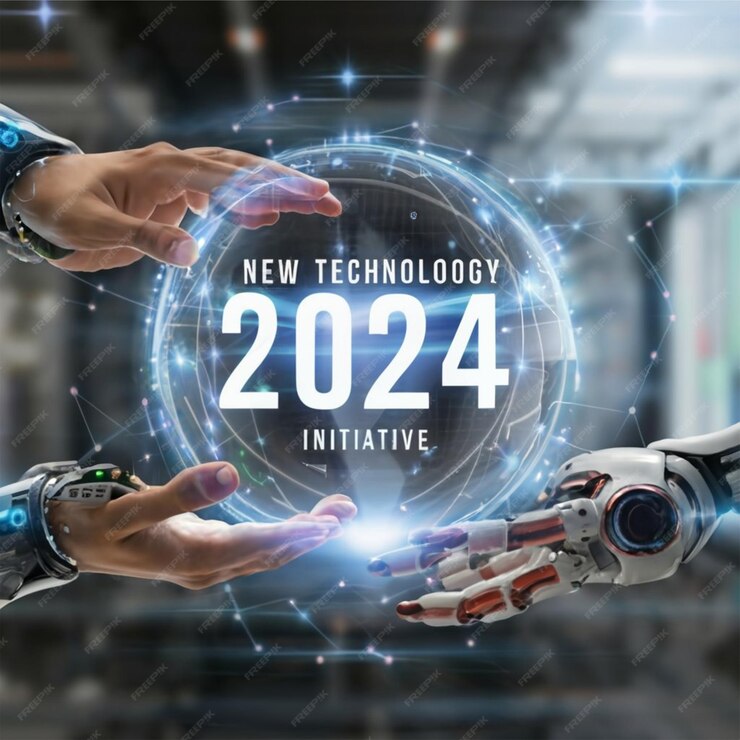
In the rapidly evolving landscape of technology, the year 2024 has emerged as a pivotal point in the Age of Artificial Intelligence (AI). With advancements in machine learning, neural networks, and robotics, society is witnessing transformative changes that are reshaping industries, economies, and daily life. This blog post explores the current state of AI in 2024, its impact on various sectors, and the challenges and opportunities it presents.
The Rise of AI in Everyday Life:

Personal assistants, powered by sophisticated AI algorithms, have become an integral part of our smartphones and smart homes. From managing our schedules to controlling home devices, AI has made tasks more manageable, allowing individuals to focus on higher-level cognitive activities.
Advanced AI algorithms analyze medical data, predict diseases, and assist doctors in making more accurate diagnoses.
Transforming Industries:

AI is disrupting traditional industries, driving innovation and efficiency. In manufacturing, AI-powered robots are increasingly taking on tasks that are repetitive or hazardous to humans. This not only ensures a safer work environment but also leads to increased production speed and accuracy.
In finance, AI algorithms are reshaping investment strategies, risk assessment, and fraud detection. The ability of AI systems to analyze vast amounts of financial data in real-time allows for more informed decision-making, contributing to the overall stability of financial markets.
The entertainment industry is leveraging AI for content creation and personalization. Streaming platforms use recommendation algorithms to suggest content based on users’ preferences, while AI-generated art and music are gaining popularity. This marks a paradigm shift in how we consume and create entertainment.
AI and the Workforce:

As AI becomes more prevalent, concerns about its impact on the workforce have been raised. While automation has the potential to streamline processes and increase productivity, it also raises questions about job displacement. However, many experts argue that AI will create new job opportunities, particularly in roles that require a human touch, creativity, and emotional intelligence.
The key lies in upskilling the workforce to adapt to the changing demands of the job market. Educational institutions and employers need to collaborate to provide training programs that equip individuals with the skills needed to thrive in an AI-driven economy.
Ethical Considerations:

The widespread adoption of AI brings forth ethical considerations that require careful examination. Issues such as bias in algorithms, privacy concerns, and the potential misuse of AI technologies pose challenges that must be addressed. Ensuring transparency and accountability in AI development and deployment is crucial to building trust among users and avoiding unintended consequences.
Regulatory bodies are grappling with the task of creating frameworks that strike a balance between promoting innovation and safeguarding ethical standards. As we navigate the age of AI, it is essential to establish guidelines that prioritize the responsible development and use of AI technologies.
AI for Social Good:

Amidst the discussions about the challenges and risks associated with AI, there are numerous examples of AI being harnessed for social good. From predicting natural disasters to optimizing resource allocation in humanitarian aid, AI has the potential to address some of society’s most pressing challenges.
In healthcare, AI is contributing to drug discovery, personalized medicine, and the development of innovative treatment options. AI-powered tools are also aiding in environmental monitoring and climate research, providing valuable insights to tackle climate change.
Conclusion:

The year 2024 marks a significant juncture in the evolution of AI, with its influence permeating various aspects of our lives. As we navigate this transformative period, it is crucial to embrace the opportunities presented by AI while remaining vigilant about its ethical implications. By fostering collaboration between technology developers, policymakers, and the public, we can harness the full potential of AI to create a future that is both innovative and ethically sound. The age of AI is upon us, and it is up to us to shape it responsibly for the benefit of humanity.

